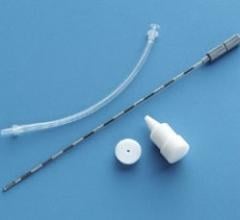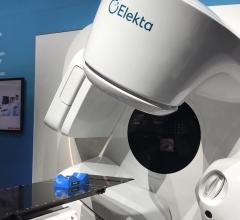July 30, 2007 — The FDA's Nanotechnology Task Force released a report that recommends the agency consider developing guidance and taking other steps to address the benefits and risks of drugs and medical devices using nanotechnology.
"Nanotechnology holds enormous potential for use in a vast array of products," said Commissioner of Food and Drugs Andrew von Eschenbach, M.D., who endorsed the Task Force Report and its recommendations on July 23, 2007. "Recognizing the emerging nature of this technology and its potential for rapid development, this report fosters the continued development of innovative, safe and effective FDA-regulated products that use nanotechnology materials."
Scientists and researchers increasingly are working in the nanoscale, creating and using materials and devices at the level of molecules and atoms-1/100,000th the width of a human hair.
The FDA's Task Force Report on Nanotechnology addresses regulatory and scientific issues and recommends FDA consider development of nanotechnology-associated guidance for manufacturers and researchers. The Task Force was initiated by Commissioner von Eschenbach in 2006.
The Task Force reports that nanoscale materials potentially could be used in most product types regulated by FDA and that those materials present challenges similar to those posed by products using other emerging technologies. The challenges, however, may be complicated by the fact that properties relevant to product safety and effectiveness may change as size varies within the nanoscale.
The report also says that the emerging and uncertain nature of nanotechnology and the potentially rapid development of applications for FDA-regulated products highlight the need for ensuring transparent, consistent, and predictable regulatory pathways.
Anticipating the potential for rapid development in the field, the report recommends consideration of agency guidance that would clarify, for example, what information to give FDA about products, and also when the use of nanoscale materials may change the regulatory status of particular products. As with other FDA guidance, draft guidance documents would be made available for public comment prior to being finalized.
In addition, the report says the FDA should work to assess data needs to better regulate nanotechnology products, including biological effects and interactions of nanoscale materials. The agency also should develop in-house expertise and ensure consideration of relevant new information on nanotechnology as it becomes available, according to the report. FDA should evaluate the adequacy of current testing approaches to assess safety, effectiveness and quality of nanoscale materials.
FDA and 22 other federal agencies are part of the National Nanotechnology Initiative, a federal research and development program established to coordinate the multi-agency efforts in nanoscale science, engineering, and technology.
For more information: www.nano.gov and www.fda.gov


 April 29, 2024
April 29, 2024 








